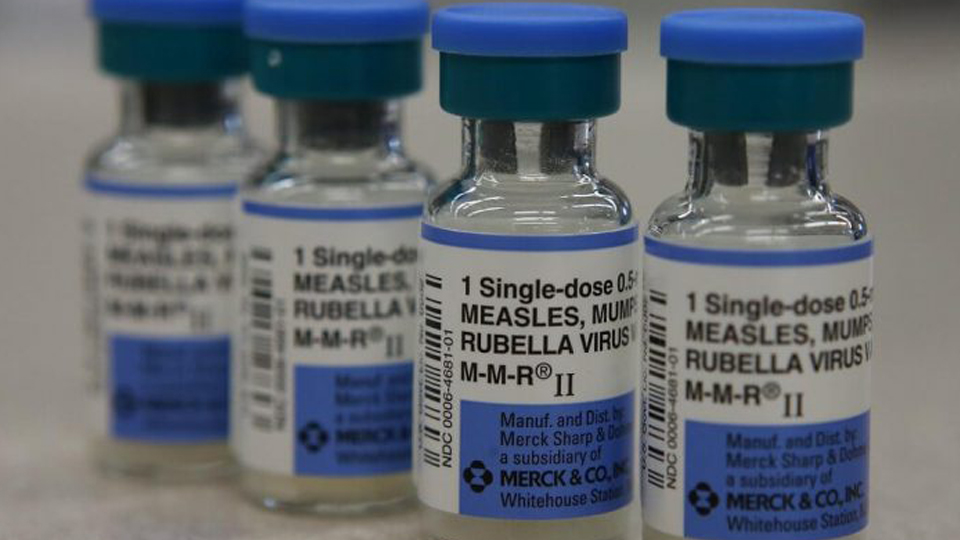Potential foster families decry vaccine requirements
Subscriber Benefit
As a subscriber you can listen to articles at work, in the car, or while you work out. Subscribe Now
In Indiana, some families say they are prohibited from serving as foster homes because of their personal beliefs surrounding vaccines, which are required for the children of potential foster families.
With the passage of an abortion ban, child advocates worry about the impact on the state’s foster care system, which doesn’t have enough families for the current number of children. Advocates testified before the Indiana House earlier this month that the shortage of homes means the Department of Child Services sometimes houses children on their office floors.
In response, Rep. Chris Judy, R-Fort Wayne, introduced an amendment to the General Assembly’s $75 million investment in social services seeking to allow families to claim religious and medical exemptions to the vaccine requirements. The bill seeks to accommodate the increased demand in services following the passage of an abortion ban.
“I brought the amendment just to bring awareness to it,” Judy said. On the floor, he withdrew the amendment and the chamber didn’t vote on the proposal. “There’s a lot of loving families out there that would like to foster and I think giving them the ability to, regardless of their immunization status, would be a step in the right direction.”
Judy said his family declined to vaccinate his youngest child, 10, and previously fostered his niece and nephew temporarily. Immunization requirements don’t apply to kinship care, or foster families related to the children.
Requirements for foster families in Indiana
The Department of Child Services declined an interview and didn’t respond to an emailed list of questions surrounding vaccines sent on Wednesday. They didn’t clarify which vaccines the department required or how many families had been rejected for failing to comply with this requirement.
In Indiana, to be licensed as a foster parent, an applicant must be at least 21 years old and pass a criminal history/ background check. Their home must meet certain physical standards and pass a home-study assessment.
Along with financial stability, the applying parent must provide medical statements from a physician for all household members and complete training requirements. Foster parents don’t need to be married – and can be single or cohabiting – but a relationship should be established for at least one year.
The medical statement from a physician includes one checkbox for vaccines, asking if a child’s immunizations are current. The form also includes space for medical history questions about drug and alcohol assessments.
Similar forms for foster parents in Ohio and Michigan do not include any checkbox for immunizations.
“The physical and mental health of all members of the foster family or other individuals living in the foster family home, excluding foster children, shall be such that it will not be detrimental to the health and welfare of the foster children,” Indiana’s requirements read.
Indiana’s foster system does require families to lock up firearms.
The importance of vaccines
Possibly due to unfounded concerns about the COVID-19 vaccine, overall vaccine hesitancy increased during the COVID-19 pandemic. Over the last few years, many parents opted to delay vaccines for their children, with a 14% nationwide drop for all vaccines – including a 20% drop for the measles vaccine, according to the Centers for Disease Control and Prevention.
Many of the immunizations suggested in the CDC’s immunization schedule for children used to be deadly or debilitating diseases, such as polio or whooping cough. Vaccines virtually eradicated the dangers of those diseases.
Additionally, many children in the foster care system may not have completed their childhood immunizations due to the abuse and neglect they experienced in their previous living situation. In the interest of the child, most states require foster children to be vaccinated according to the American Academy of Pediatrics’ recommended immunization schedule.
To give an additional layer of protection, some states require the children of foster families be vaccinated as well.
The Administration for Children and Families, part of the Department of Health and Human Services, crafted model standards for foster care under former President Donald Trump. Standards include immunizations for children in the home, though the organization acknowledged that the “vast majority” of the 1,273 public comments objected to this standard.
Specifically, children should be vaccinated according to prevailing immunization schedules and every household member must have an up-to-date pertussis (whooping cough) vaccine and annual influenza vaccination if caring for an infant or a child with special medical needs.
A guide to foster care in each state as of February 2018 from the Child Welfare Information Gateway (part of the U.S. Department of Health & Human Services) lists only four states with vaccination requirements for household children explicitly included in their foster family requirements: Arkansas, Missouri, New Mexico and South Dakota. In addition to children, Missouri requires all household members to have up-to-date immunizations.
However, 26 states do require vaccinations for one type of household member: pets.
Judy previously introduced his amendment allowing exemptions to vaccine requirements as a bill in 2021 but it didn’t receive a committee reading. He said he wasn’t done bringing attention to this issue.
“I’m going to work on it again this fall and bring it out as a bill in the next session,” Judy said.
The Indiana Capital Chronicle is an independent, not-for-profit news organization that covers state government, policy and elections.
